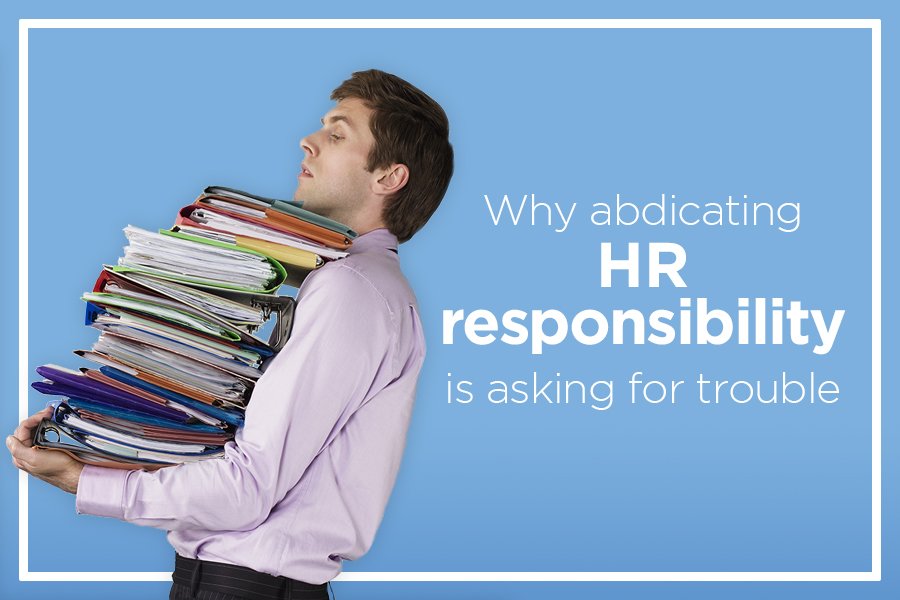
Here’s a question; would you let your accountant do your marketing?
The answer, if you’re sensible, is ‘no’. Yet within many small to medium-sized businesses, there’s one role that often gets delegated to somebody who, in all honesty, isn’t qualified for the job.
The role is HR, and delegated should probably read ‘abdicated’.
Too many people leading our SMEs are knowingly and unknowingly shifting the responsibility of HR onto someone else in the company, but, abdicating your HR responsibilities to Susan in admin or Steve the Commercial director is asking for trouble.
So why does it happen?
Because many HR assistants, coordinators and even managers in SME businesses are ‘accidental’. They didn’t set out to take on HR responsibilities, meaning they have little knowledge and experience in the intricacies of HR (and believe me, there are many!). But, as they excel through the company for being good in an entirely different role, they somehow seem like the right person to trust with this area your business.
But HR isn’t an area you can simply give to someone else to look after. It’s not easy, and as with most jobs, HR professionals require specific skills to ensure things are done properly. They need to be impartial and objective in the case of a disciplinary, for example, and have an innate ability to train, mentor and develop people in their role as a leader. This all means more profit.
Push too far and lose them altogether
I bet the skills I’ve mentioned above aren’t the first ones that spring to your mind when you think of Susan in admin or Steve in commercial? That’s because they’re not trained in those areas, meaning handing over HR responsibility to those individuals is asking for trouble, either now or in the very near future.
Don’t get me wrong, some of the HR skills mentioned above can be – in part – picked up on the job. But while you think you might be saving money by letting Steve learn as he goes and ‘helping to support his own development’, he’s likely to get increasingly uncomfortable with the HR workload he’s inadvertently acquired and never really signed up to. Push him too far, and you risk losing him altogether. If he doesn’t leave, but continues with HR despite it not being a specialism, you’re wasting the potential of HR in your business. HR should add to the bottom line, but it can only do that if used properly.
In summary, HR – just like finance or legal – requires a specialist to understand the intricacies, do the job properly, earn your business money and prevent you from setting your business up for a fall.
Gavin Howarth is managing director at Howarths. If this post rings a bell and you’d like to discuss your company’s HR provision, contact Gav on 01274 864999 or email gavin@howarths-uk.com
